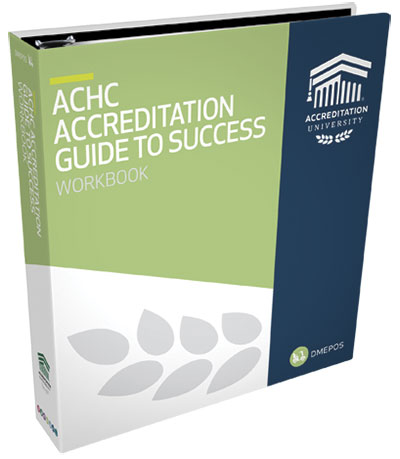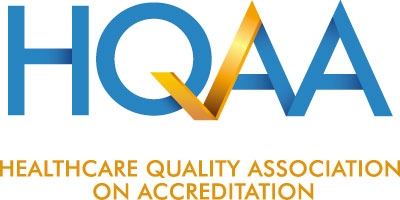The Compliance Team, Inc.
Sandra Canally RN, Founder and CEO www.thecomplianceteam.org
 Healthcare Accreditation Organization
Healthcare Accreditation OrganizationHow does your company stand out in the accreditation industry?
CANNALLY: Our accreditation programs focus on process standardization and simplification. Companies we accredit hold the designation of Exemplary Provider, which they are able to use for quality recognition purposes.
Where are the trends in your industry?
CANNALLY: Marketing efforts are now more robust—especially with social media—so we look at all of a provider’s marketing from a compliance perspective.
Do you anticipate any challenges in your industry this year?
CANNALLY: I believe there will be more opportunities in accreditation throughout the provider industry. It is all about demonstrating proof of quality, and using accreditation as a vehicle to do that.
How do you plan to remain successful in the accreditation industry in 2016?
CANNALLY: Independent pharmacies are becoming recognized as HME providers, and have more responsibility in the care delivery system. Having accreditation is a way to demonstrate quality.
How does your company help HMEs meet industry challenges?
CANNALLY: Through the influx of ACOs, there is a need for HME providers to show proof of their quality. Our accreditation program and Exemplary Provider designation does that.
Board of Certification/Accreditation (BOC)
Wendy Miller, BOCO, LO, CDME Chief Credentialing Officer www.bocusa.org
 BOC Mobile Device Software Platform
BOC Mobile Device Software PlatformTell us about your company. MILLER: The Board of Certification/Accreditation (BOC) offers credentialing for DME suppliers and comprehensive orthotic and prosthetic (O&P) care, and the professionals employed at these businesses.
How are new technologies impacting customers and end users?
MILLER: In 2014, BOC implemented use of a software platform that can be used on mobile devices. This software allows BOC-accredited suppliers to record compliance with regulations, industry standards and corporate benchmarks in real time.
How will competitive bidding and other challenges affect your industry this year?
MILLER: Suppliers who do not earn a bid may experience a significant drop in revenue. In response, BOC will continue educating its suppliers about product categories that fall outside of competitive bidding requirements.
What new products are you excited about?
MILLER: BOC introduced GoBOC, a public, online directory where BOC-credentialed suppliers and certificants can promote themselves and allow patients and other professionals to find them.
What challenges are impacting HMEs, and how are your accreditation products helping them meet those challenges?
MILLER: The frequent changes to CMS rules present ongoing compliance challenges. BOC ensures its constituents are informed and prepared to meet all relevant standards and regulatory requirements.
In your opinion, what is the single most important thing that HMEs can do to stay competitive in 2016?
MILLER: Having a Certified DME Specialist (CDME) on staff is one way to stay competitive. The presence of a CDME sends a message to customers and referral sources the supplier has taken an extra step to ensure high-quality patient care.
Accreditation Commission for Health Care (ACHC)
Kevin O’Connell, Senior Marketing Associate www.achc.org
 Accreditation University
Accreditation UniversityHow does your company stand out in the accreditation market?
O’CONNELL: Accreditation Commission for Health Care (ACHC) is a nationally recognized accreditation organization synonymous with providing the very best in customer service, integrity and value.
What trends are you seeing in the accreditation industry this year?
O’CONNELL: We at ACHC recognize an increasing need for educational resources to support ongoing compliance. ACHC offers a range of customizable educational offerings through its Accreditation University division.
What challenges do you anticipate this year, and how do you plan to meet those challenges?
O’CONNELL: Accreditation organizations must stay up to date with changing industry requirements, including competitive bidding, audits and IDC-10. It is our commitment to partner with providers to help them maintain compliance between surveys.
Where does HME education fit into your business?
O’CONNELL: Accreditation University offers a range of new educational products to support providers, including workbooks, workshops, compliance checklists and webinars.
How do you help HME providers meet the challenges they face in their businesses?
O’CONNELL: Accreditation can help providers enhance and stabilize their operations, providing a business foundation that is better able to cope with adjustments.
How can accreditation help struggling HMEs?
O’CONNELL: Achieving accreditation allows providers to be eligible for reimbursement from third-party payers, in addition to providing a distinction among the marketplace.
HQAA
Mary Nicholas, President/CEO www.hqaa.org

Tell us about your company.
NICHOLAS: HQAA is an approved authority by CMS to accredit DME/HME suppliers for Part B billable products and supplies. What does 2016 hold for the accreditation industry?
NICHOLAS: With all of the impacts to suppliers that have occurred during the past six years, mergers, acquisitions and closures have greatly increased. Assisting suppliers in ensuring accurately reporting the changes they’ve endured is an ongoing challenge.
How does your company stay competitive?
NICHOLAS: We continuously work to make the process of accreditation efficient, and keep the costs associated competitive.
How do your products help HMEs meet the challenges that they face in this changing environment?
NICHOLAS: DME suppliers have to do more with less, and we attempt to ensure that the accreditation process is efficient, so as not to overburden their businesses with unneeded or unnecessary requirements.
